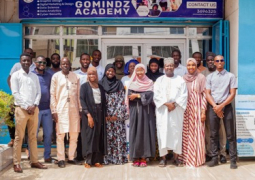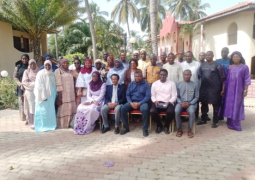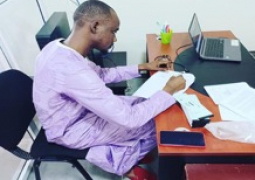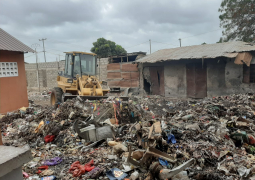As the tourism season progresses, many hotels have expanded their offerings to include a variety of activities and services, ranging from sightseeing, tours, to selling of crafts among others.
This shift as attributed by some business operators in the sector, has led to a significant change in tourist behavior, with many opting to remain within the hotel premises rather than exploring the local area and supporting nearby businesses.
Local businesses have expressed frustration over this trend, noting that the all-inclusive model, while appealing to tourists seeking convenience, has inadvertently stifled the opportunities for local vendors and businesses that rely on tourist for profit and better sales.
In an interview with The Point, Modou Camara, Chief Controller of the Palma Rima Tourist Taxi Association, who has been in the industry for 29 years, recalled that when most tourists pay hotels full package it becomes difficult for them to book a trip with them.
“The only trips we have nowadays are the short ones, wherein they book us for two or three hours and this does not cost much for our sustainability. We are always in competition with the tour companies who bag the best trips. This leaves us in position to settle for the shorter trips which cost less.”
The system, he added, started after the year 2016 and that it has been existing only by 20% ever since. However, he noted that this percentage did not disturb their business then. Nowadays, the percentage has risen to 85% which is bad for our income.
He lamented that locals are no longer benefiting from the tourism. Only hotels are.
“We are all Gambian who pay our taxes to ensure our smooth operation. Therefore, this system need to be eradicated to allow tourists freely spend their money, so that all sectors in the industry can benefit.”
The industry, he observed, used to be lucrative for both locals and government; however, the trend has changed, the benefits are now one sided.
On his part, Haruna Barry, a cow boy (horse rider), said the only service tourists should have in hotels are room and laundry.
“When tourists are asked the reasons for their visit most responses are to see the real beauty of the country. These inclusive packages are defeating that purpose.” he said.
He called on the Tourism Ministry to eradicate this system to ensure the free movement of tourists for locals to benefit.
“We barely have free movement in the beaches and we are licensed, we keep getting chased away whenever we try getting close to hotels that host these tourists and this is costing us less customers,” he lamented.
Mariama Darboe, a craft market vendor, expressed similar challenges, noting that they don’t feel the difference between tourist season and off season.
“The inclusive has changed so many things. We barely make sales from them, locals seem to patronise us more nowadays and they are not even targeted customers. We always expect massive sales during the season however, it keeps getting worse each year.”
Sering Njie, also a horse rider, equally called on the government to provide permanent habitat and water for their horses.
“Our horses are citizens and are licensed, and we still do not have a permanent habitat and water for our horses. We always fetch water from the hotels who sometimes deprive us, so we want the government to support us.”
In the past, visitors were more inclined to venture outside their hotels to experience local culture, cuisine, and shopping. However, the current trend of hotels providing everything a tourist might need has created a more insular experience, limiting engagement with the surrounding community.
Operators are calling for support from the central government to address this issue. This, they believe through a collaborative approach, is key in creating a balanced tourism environment that benefits both hotels and local businesses.





